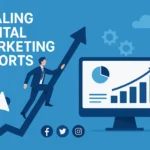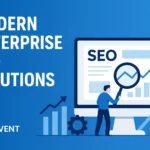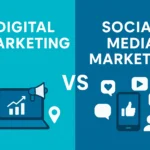Is Social Network Advertising Still Worth It in 2025? A Comprehensive Guide

Email marketing remains one of the most cost-effective channels in the digital world. A well-run campaign can deliver a sky-high ROI, making it a must-have for companies of all sizes. But one critical question keeps coming up: should you hire a full service email marketing agency or build your own in-house team? This decision directly impacts how your brand connects with customers, generates leads, and drives sales.
How to Choose an Email Marketing Agency
Before making a choice, you must define what you expect from your campaigns. Are you aiming to capture more leads, retain existing customers, boost brand awareness, or increase sales? Knowing your objectives helps you decide whether you need the depth of expertise a B2B email marketing agency might offer or the hands-on control of an in-house team.
Next, assess your current resources, your budget, existing skills, and tools. An honest evaluation will reveal if your business has the capacity to handle campaigns internally or if it’s better to bring in outside specialists. Understanding your target audience is equally crucial. An agency skilled in email marketing advertising may be able to segment and target with precision based on open rates, click behavior, and buying patterns. In many cases, consulting with an experienced email marketing consultant can help you interpret this data and shape a more effective strategy from the start.
How to Start an Email Marketing Agency?
Many businesses discover that partnering with professional email marketing agencies offers unmatched advantages but for entrepreneurs, starting your own agency can be a lucrative venture. To begin, you need a deep understanding of automation platforms, segmentation techniques, and compliance laws. Most successful founders also work as consultants before launching a full-scale agency, helping them build case studies and client trust.
Access to Expertise and Proven Strategies
Agencies employ specialists in copywriting, design, automation, and analytics. Their cross-industry experience gives them a library of proven tactics. For instance, a B2B email marketing agency might tailor messaging for complex sales cycles, while a retail-focused agency can boost engagement through targeted seasonal campaigns.
Cost-Effectiveness and Flexibility
How much do agencies charge for email marketing? Prices vary widely; small agencies may start from a few hundred dollars per month, while larger full service email marketing agencies handling strategy, design, and automation can run into the thousands. While this may seem costly, it’s often cheaper than hiring, training, and retaining a full in-house team. Many agencies also offer scalable packages, allowing you to ramp up campaigns during peak seasons without committing to permanent salaries.
How Much Do Email Marketing Agencies Make?
Top-performing agencies can generate substantial revenue, especially when offering premium services like advanced automation, deep segmentation, and strategic consulting. This profitability reflects the measurable value they bring to their clients higher open rates, better conversions, and stronger ROI. For clients, this means that while the costs may seem high, the returns often justify the investment.
The Case for an In-House Email Marketing Team
Some brands prefer to keep everything under one roof.
Total Brand Control and Consistency
An in-house team ensures every email reflects your brand voice. This can be crucial for niche businesses or those with a distinct identity.
Deep Product Knowledge
Your internal marketers live and breathe your products. They can create highly relevant and personalized messaging without lengthy onboarding.
Agility and Speed
With no outside coordination required, in-house teams can quickly launch campaigns in response to market changes, customer feedback, or breaking news.
Long-Term Value
Over time, an internal team builds a deep well of institutional knowledge. This expertise stays within the company, creating long-term ROI.
Key Considerations for Both Models
Budget: Compare agency fees to the full costs of salaries, benefits, tools, and training for an in-house team.
KPIs: Whether internal or outsourced, measure campaign success using open rates, click-through rates, conversions, and ROI.
Skill Gaps: Identify missing skills and decide whether they’re best filled by hiring or outsourcing.
Integration: Ensure your email efforts align with social media, SEO, and paid ads for a unified marketing strategy.
Hybrid Solutions: Mixing Agency and In-House Strengths
Some businesses find success in a hybrid model: an agency handles complex automation or high-level strategy, while the internal team manages day-to-day execution. This can provide the creativity, flexibility, and brand knowledge needed for consistent results.
Conclusion
Choosing between an email marketing agency and an in-house team depends on your goals, resources, and growth plans. A well-chosen agency can deliver instant expertise, scalability, and efficiency. An in-house team offers control, authenticity, and long-term brand alignment. In either case, a customer-focused, data-driven approach is the foundation for sustainable email marketing success. At Tekvent, we help businesses navigate this choice with strategies designed for measurable growth.


